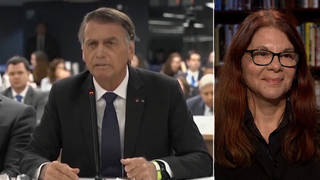
The United Nations General Assembly ended its historic three-day special session on AIDS yesterday with promises tostart speaking plainly about the disease, to reduce infection rates and treat the afflicted, and to provide the moneyto implement those goals. In a 16-page declaration, approved by consensus and enthusiastic applause despite what U.N.Secretary General Kofi Annan had called “painful differences” among nations, the 189-member body acknowledged thatdiscrimination against those with AIDS and those whose behavior makes them particularly vulnerable to the disease,lack of women’s rights and failure to provide adequate sex education for the young contribute to its spread.The meeting was scheduled six months ago as nations realized that AIDS threatened to eliminate an entire generationin some countries, particularly African nations, and to devastate developing economies around the globe. The firstU.N. special session devoted exclusively to a health issue put the world’s governments on record with pledges to dealwith the pandemic. The declaration requires member states to report their progress on specific targets and methodsfor reducing the spread of HIV.
But there were many contentious issues. Early in the week, Islamic nations threw open insults at the U.N. GeneralAssembly President for stopping a filibuster aimed at preventing the participation of gay rights groups. Languageabout high-risk groups was eventually deleted from the declaration because some nations opposed even the mention ofgays and lesbians. Conservative countries also succeeded in softening language on the rights of women.
Countries and corporations alike pledged money to the Global AIDS Fund, which U.N. Secretary General Kofi Annanproposed in April. But AIDS activists slammed the initial U.S. contribution of $200 million as painfully inadequate,and charged that several other countries contributed much smaller amounts after Washington’s “dubious lead.” JubileeUSA, a group lobbying to cancel poor countries’ foreign debts, noted that “the 200 million dollars which Bush haspledged is the same amount as sub-Saharan Africa spends on debt payments in a week. That means that the US Congresscould write the check on a Monday and by Friday, Africa would have paid it back. Congressional leaders on Tuesdaypledged another $750 million to the fund.
On Tuesday, around 30 accredited participants protested inside the U.N. against the exclusion of language mentioningvulnerable populations, the lack of funding for the global AIDS fund, and the prioritization of prevention overtreatment.
And just as the conference was beginning, the U.S. dropped its WTO complaint against Brazil for the production ofgeneric AIDS medications.
Guests:
- Maria Luisa Mendonca, Director of the Global Justice Center in Brazil, and Director of Brazil Program atGlobal Exchange.
- Phumi Mthetwa, a founding member of the Treatment Action Campaign in South Africa and the secretarygeneral of the International Lesbian and Gay Association.
- Eric Sawyer, founding member of ACTUP (AIDS Coalition to Unleash Power)–New York.
- Chris Beyrer, MD, MPH, at Johns Hopkins University School of Public Health, author of ??War in the Blood:Sex, Politics and AIDS in Southeast Asia.
Related links:











Media Options